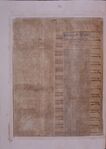< The Career of Colonel Henry S. Olcott (continued from page 4-93) >
advising and transacting business in chambers. During the war with the South, he was appointed special counsel for the War Department, and was connected with that office for three or four years. In the course of that employment he was largely concerned in the prevention of frauds upon the Government, examined about two thousand witnesses a year, and saved the Government three or four millions of dollars. He was afterwards retained also by the Navy Department. Much of this employment was administrative rather than legal, and such was the reputation he acquired as a military organiser, that, at the conclusion of the war, he was offered the important post of Military Governor of Virginia, one of the chief lately insurgent States. This, however, he declined, preferring the independence of a private career. He resumed his practice as a lawyer, and was elected secretary to the Insurance Convention, a body formed by the Insurance Commissioners of the several States with the view of harmonizing the laws and official rules of the States respecting such companies. Colonel Olcott is the author of a Consolidation Statute, and of two large volumes of Reports on Insurance, which have been very favourably reviewed. He is also the author of a work on Genealogy, and is well known in America as a journalist and pamphleteer on many subjects. He also holds medals from scientific bodies. Now I would ask, is this a man whom, if he were an Englishmen, Dr. Carpenter would venture to publicly describe as a u gobemouche?” or, if he did, would not the offensive attack be reprobated by public and literary opinion? But putting aside the discourtesy, look at the circular reasoning implied in this sort of judgment. A testifies to what B, C, and D. consider, without examination, to be incredible. They therefore call A (as they can’t doubt his honesty) credulous, or u gobemouche.” Then E (Dr. Carpenter), who professes to examine, wants to know what A’s testimony is worth. So he goes to B, C, and D, and asks them what sort of a person A is. Of course they say, “Oh, credulous—a gobemouche,” and then he gravely quotes this judgment, or rather makes it his own, as a reason for discrediting A’s testimony! Hitherto I have spoken no word of disrespect of Dr. Carpenter, unless to advert to the prejudices and prepossessions under which we Spiritualists all believe him to labour on one subject. I have always felt grateful to him for the physiological information his books have imparted to me, and for making pleasant reading of a hard study. I have also thought he behaved not unfairly to Dr. Slade at the time of our great trouble last year, and have regretted that the introduction by other men of “science” of the new method of scientific investigation by police-court prosecutions (to which Dr. Carpenter distinctly refused to be a party), prevented his pursuit of inquiries, which I still verily believe would have led to a change in his opinions, and to a very different use of his influence. And no one has more reason to regret this than Dr. Carpenter himself. He publicly admitted (and the admission should be remembered in his favour) that he had become interested in an investigation with Slade, and had that investigation proceeded with success, as it undoubtedly would have done, at Dr. Carpenter’s own house, Dr. Carpenter might have had the honour of anticipating the judgment, which, if recent intelligence from Germany be correct, may very shortly rebuke the intolerance and stupidity that have disgraced this country. But unfortunately Dr. Carpenter has missed his opportunity; and preferring the prepossession of a lifetime, and the estimation of his scientific contemporaries to the enduring fame that awaits Mr. Crookes, has devoted himself to a fresh assault upon truth, and to misrepresentations of its upholders. The Englishmen whom he has attacked are well able to defend themselves, and one of them has already given Dr. Carpenter cause to regret some parts of his article in Fraser. The short account I now furnish of Col. Olcott may enable your readers to judge whether Dr. Carpenter is more likely to be justified in an ignorant contempt based upon prejudiced reports of an absent foreigner.
I may add that the reference to Col. Olcott is peculiarly inappropriate, seeing that no one has gone further than that gentleman in public and unsparing exposure and denunciation of fraud, folly, and excess connected with American Spiritualism—a course of conduct that has often brought him into, collision with credulous enthusiasm.
Temple, Noyember 26th.
The Spirit-Land
...
<... continues on page 4-95 >
Editor's notes
- ↑ The Spirit-Land by Baboo Peary Chand Mittra, Banner of Light, Boston, Saturday, December 8, 1877. From The Spiritualist, London, Eng.
